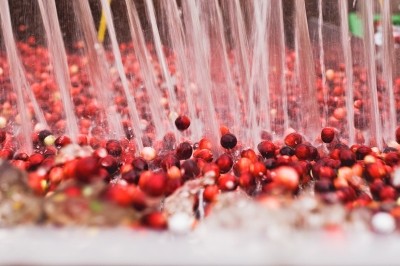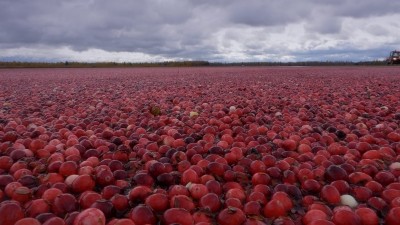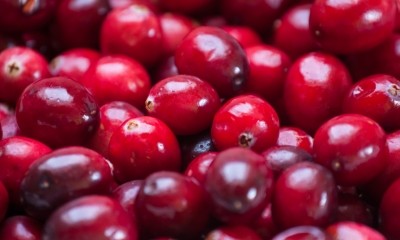Negative cranberry study looked at wrong endpoint and editorial confounded issue, experts say

“It is quite surprising and frankly very disappointing that an internationally recognized medical journals such as JAMA would publish a study like this accompanied by an editorial that was completely dismissive of cranberry without soliciting commentary from researchers that have previously studied cranberries and UTI prevention and are familiar with some of the research caveats that have influenced the outcomes of previous studies,” said Amy Howell, PhD, an associated research scientist at Rutgers University in New Jersey and one of the world’s foremost experts on the botanical.
Is cranberry toast?
The study, titled “Effect of Cranberry Capsules on Bacteriuria Plus Pyuria Among Older Women in Nursing Homes,” was published in the Journal of the American Medical Association (JAMA). The accompanying editorial, titled “Cranberry for Prevention of Urinary Tract Infection? Time to Move On,” was written by Dr Lindsay Nicolle, MD, and appeared in the same edition.
Advocated for the botanical maintain that cranberry has long been associated with a positive effect on urinary tract infections (UTIs) in women. The method of action has been shown to be the ability of the proanthocyanidins in the botanical to inhibit the adherence of pathogenic bacteria to cell walls, preventing the formation of harmful biofilms. The study in question looked at 185 women in nursing homes in the US, and did not find a significant effect for the cranberry intervention.
“Clinicians who encourage [the use of cranberry preparations to ameliorate UTI symptoms] are doing their patients a disservice. Recurrent UTI is a common problem that is distressing to patients and because it is so frequent and costly for the health care system. It is time to identify other potential approaches for management. This certainly must include a wiser use of antimicrobial therapy for syndromes of recurrent UTI in women in long-term care facilities,” Nicolle wrote.
High quality study material
The study did take into account one confounding factor noted in past cranberry research, that being the lack of standardized research materials, some of which might have been hard to stomach for some participants for the entire research period (such as has been the case for cranberry juice products) or which might have contained insufficient proanthocyanidins. In this case the study used capsules manufactured by Pharmatoka, a respected French dietary supplement manufacturer, with each dose containing 36 mg of proanthocyanidins. So in this respect the authors obviated one obvious avenue for critics to question their results.
“This is one of the high quality cranberry preparations,” said Mark Blumenthal, founder and executive director of the American Botanical Council. “So from that standpoint the results were disappointing. But what was really disappointing was when the accompanying editorial jumped on the results of this one study to say that cranberry is down and out which may be premature. They seem quick to editorialize like this when there is a negative study for a botanical and to affirm the use of drugs instead, when for cranberry there is more evidence showing prevention and even some showing a treatment effect.”
Finding what you are looking for
The study examined the levels of bacteria in the urine of the women and failed to find a difference between the cranberry and placebo groups. Howell said she was disappointed that if the researchers were trying to determine if cranberry worked for UTIs, they didn’t design their study around that endpoint rather than looking at a subsidiary biomarker. It is not uncommon for bacteria to be found in urine in the absence of UTI symptoms, she said.
“The problem is this study was not designed to assess the ability of cranberry to prevent recurrent UTI, because the vast majority of participants never suffered from UTIs and therefore would not be expected to get them during the study period. Bacteriuria, which was the actual focus of this study, occurs frequently in elderly nursing home patients and is not necessarily an indicator of clinical UTI,” she said.
“This current JAMA study was unfortunately a missed opportunity to advance the clinical research around cranberry, as it focused on bacteriuria instead of prevention of recurrent UTI, which is the health benefit that cranberry is known for,” Howell said.
Overstated and inaccurate interpretation
Nicolle’s accompanying editorial then stretched the results past the breaking point, Howell said.
“The unfortunate conclusions expressed by Dr Lindsay Nicolle in the accompanying JAMA editorial on the study were based on significantly overstated and inaccurate interpretation of the study results, which have been construed very negatively by the media,” she said.
A statement by The Cranberry Institute echoed the way Blumenthal cited the general positive drift of the many years of cranberry research. The statement said the institute “maintains its confidence in the decades of scientific studies from independent research institutions globally, that have demonstrated that regular consumption of cranberry products help promote a healthy urinary tract – especially in individuals suffering from recurrent UTIs.”
Source:
JAMA
“Effect of Cranberry Capsules on Bacteriuria Plus PyuriaAmong Older Women in Nursing Homes; A Randomized Clinical Trial”
2016 Oct 27. doi: 10.1001/jama.2016.16141. [Epub ahead of print]
Authors: Juhtani-Mehta M, et al.
























